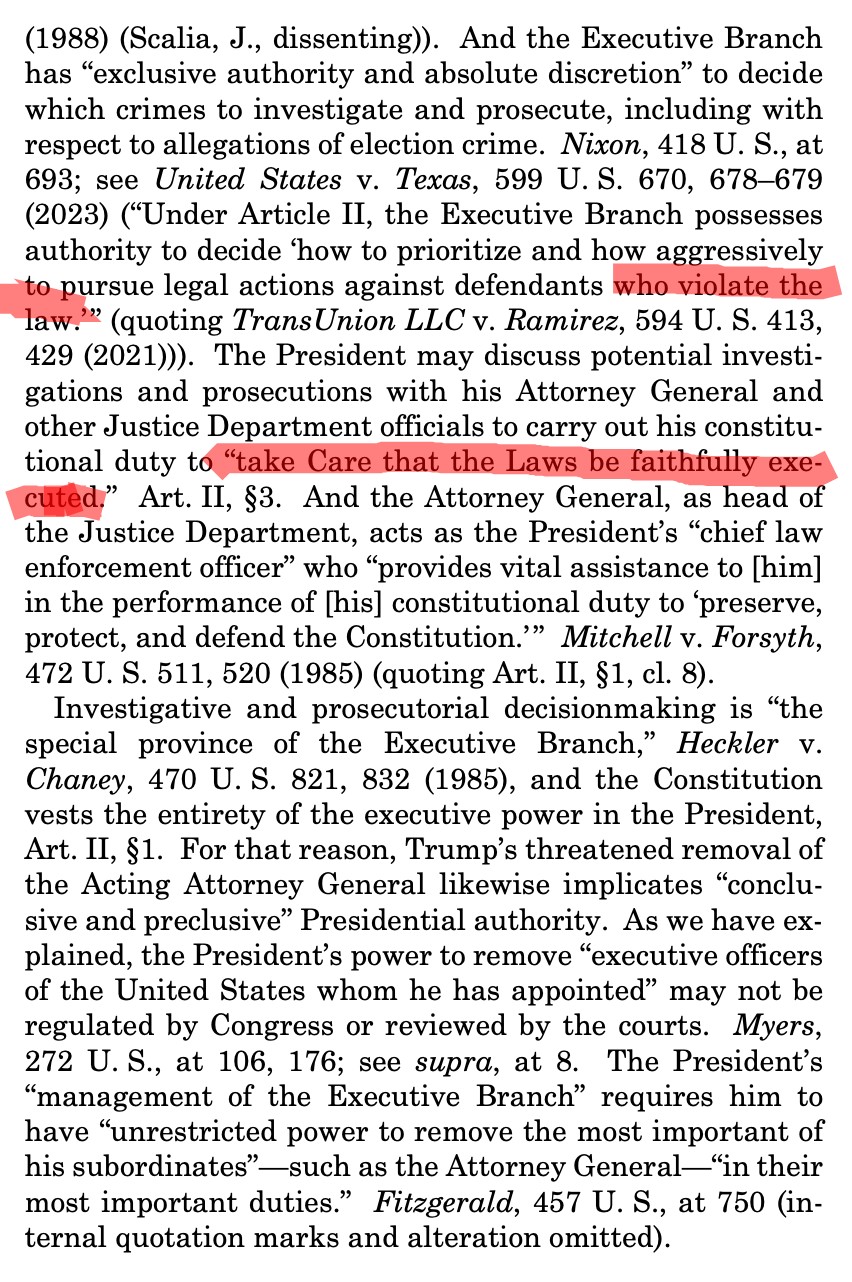@volkris @AltonDooley So, what did they say?
@volkris @AltonDooley So, they gave him immunity for official acts but not for unofficial acts. That's what I (and many others) thought.
@volkris @AltonDooley I don't live in America¹ and I'm ill and fairly sick of politics, so I'm not going to read the entire decision. Sorry.
[1] Although I do have citizenship and family who live there.
[1] Although I do have citizenship and family who live there.
- replies
- 1
- announces
- 1
- likes
- 0
@volkris @AltonDooley But why would there need to be a ruling that says that? Maybe I need to read the decision for that.

@realcaseyrollins @AltonDooley @realcaseyrollins @volkris @interfluidity Please try not to make personal attacks, both of you
@realcaseyrollins @AltonDooley @realcaseyrollins @volkris @interfluidity Easy to make mistakes like that in a heated and emotional situation